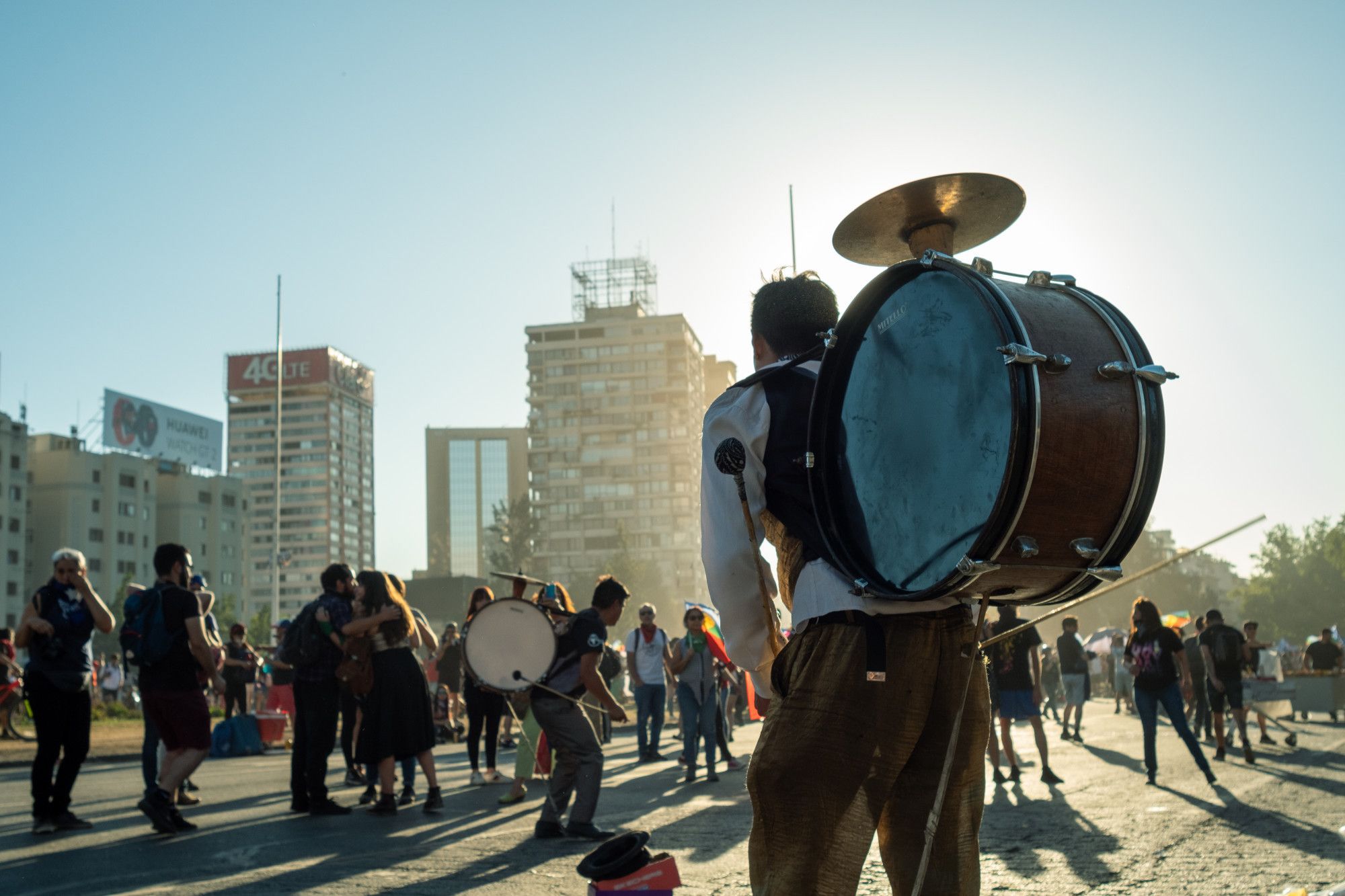“El pueblo, el pueblo, el pueblo ¿dónde está?”

This article examines the sonic dimensions of Chile’s Estallido Social, highlighting how noise became a powerful tool of resistance. Building on Jacques Attali’s concept of noise as a disruptor of societal norms, the piece explores how sonic practices, such as cacerolazos and protest chants, challenged existing power structures and redefined public space. Attali argued that noise is not just a byproduct of chaos but a precursor to social change, disrupting the established order to signal the emergence of new realities. Complementing this, Chattopadhyay’s idea of co-listening frames these sounds as collective political acts that foster communal engagement. By revisiting sound archives from this period, co-listening further reveals noise's creative potential, allowing it to resonate across memories, territories, and conflicts, and to imagine alternative futures.